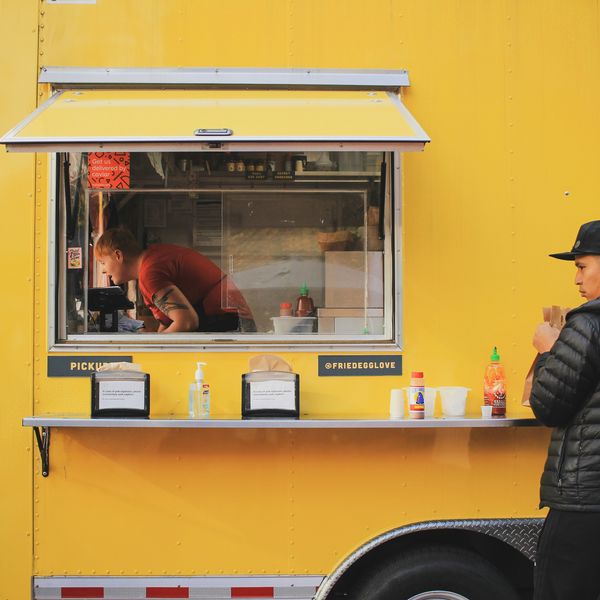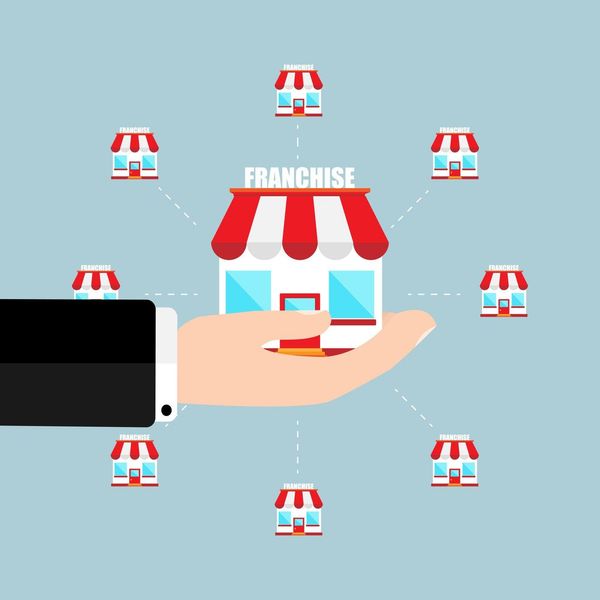
Do You Have What It Takes to Be a Successful Food Franchisee?
At one point, Russ Umphenour was the CEO of a company that owned 775 Arby’s franchises—the most owned by any one entity. Today, Umphenour works on the other side of the franchise equation, as the president of FOCUS Brands, a multibrand franchisor whose companies include more than 2,200 units under the brands Carvel, Cinnabon, Seattle’s Best Coffee, Schlotzsky’s, and Moe’s Southwest Grill.
His secret to food franchise success? People, people, people. To that, you might add patience, patience, patience.
“[As a food franchisee], you need to be willing to deal with customers every minute of the day, which means dealing with problems—dealing with the good and the bad,” says Umphenour. “We use a concept we call ‘service-minded.’ In our business, even though we have people working in offices [in headquarters], we say if you’re not serving guests, then you’re helping someone who is. Everything we do, from the cleanliness in our restaurants to the colors of the menu board to the quality of the food we prepare, is aimed at pleasing the guests.”
What are some other traits that are crucial to food franchise success?
5 traits of successful food franchisees
1. Employee management skills
The next step in the “people chain” are your employees. If you think customers are a handful, remember food service is also a very employee-centric business. “To [provide excellent service,] it takes building a team, hiring and training,” says Umphenour. “Training never ends in our business. [You’ve got to] get your team associates to work together effectively.”
2. Organization
To help your employees work well, you also need to be organized. You must have the systems and processes in place—many of which will be provided by the franchisor when you buy into the franchise—to help your team work quickly, effectively, and cleanly.
3. Focus and business acumen
As with any other business, you must have the business skills to understand your financials and manage the day-to-day tasks of running a company. “You have to be very hard-working. It’s a very difficult business,” says Steve Romaniello, managing director of Roark Capital Group, a private equity company that owns FOCUS Brands and other franchise groups. “You have to have a certain level of business acumen.”
Blair Chancey, editor of QSR Magazine, concurs. “What it takes to be a good food franchisee is what it takes to be a good franchisee in any other industry: good business sense. Just because you’re working with an established brand doesn’t mean your company can be on autopilot. You’re still responsible for finding marketing opportunities, keeping your P&Ls in check, and hiring top-notch employees.”
More articles from AllBusiness.com:
- Five Reasons Why Franchises Fail
- 3 Biggest Challenges Every Franchisee Faces—And How to Overcome Them
- How Long Does It Really Take to Open a Franchise?
- 10 Signs of a Great Franchise Opportunity
- 40 Reasons to Buy a Franchise
4. A love for the restaurant business
As Romaniello noted, the restaurant business is hard work. If you don’t love everything about it—the food, the customers, even the cleaning—you will probably be miserable.
One way FOCUS weeds out candidates who don’t have what it takes is by insisting all new franchisees have restaurant experience or that they attend a three- to six-week internship program. Umphenour recalls how one young businessman, who owned other successful businesses with his father, flamed out during his internship. “He didn’t want any part of working and getting his hands dirty. He wanted to be texting or on the phone. We’ll actually walk away from someone with money because we feel so strongly about this.”
If you’re not comfortable working every job in your restaurant’s kitchen and dining room, as well as in your office, then a food franchise is probably not for you.
5. Adequate capitalization
Just because you have enough money to buy into the franchise doesn’t mean that is the end of funding your business. “What often happens is if someone is undercapitalized to begin with, they [can] barely get a store open and they’ll cut corners on some of the things they’re supposed to do,” says Umphenour.
For example, FOCUS requires its franchisees to spend money on a grand opening. “But a lot of times a new franchise partners will want to cut corners there,” says Umphenour. “They don’t understand the need for that. Then they don’t understand why their restaurant doesn’t do well.” Other franchisees try to cut corners in marketing and advertising—expenditures that are key to a food franchise’s success.
“Some people think when they buy a franchise, they’ve bought a right to make money,” says Umphenour. “But it’s it constantly got to be strategized. You must constantly spend money on marketing and on your people to build a successful restaurant.”
RELATED: Buying a Franchise vs. an Independent Business: What Are the Pros and Cons?
About the Author
Laura Tiffany is a writer from Southern California who specializes in small-business issues.



